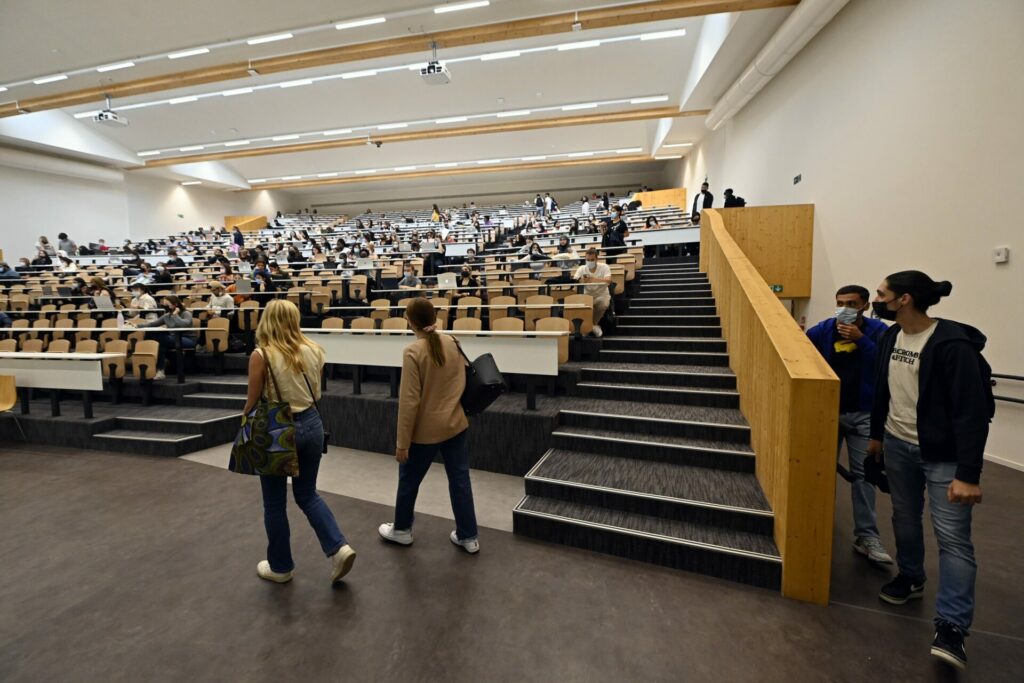Technology education in Brussels' Dutch-speaking schools is lagging. A small offer means students in the capital are at risk of not being able to position themselves in the increasingly technologically driven labour market.
As technology becomes increasingly important in society and the everyday lives of people, the number of STEM courses (Science, Technology, Engineering and Mathematics) that focus on these topics, ranging from robotics to artificial intelligence, has been on the rise within the education landscape for several years now.
However, in Brussels' secondary and higher education, the number remains too low. "In Flanders, after secondary school, you can choose from about 30 technological programmes. In Brussels, there are just eight," said Odisee University College's Machteld Van den Bogaerd.
"At a time when the professional field needs technically trained profiles, that offer falls short. Too limited a training offer translates into too few opportunities for Brussels youngsters."
Issue with reputation
STEM education not only focuses on learning and development that integrates the areas of science, technology, engineering and mathematics but also ensures that students develop other skills that are not as prioritised in the ASO (General Secondary Education) and traditional university curricula, such as problem-solving, creativity and critical analysis.
A research group run by Odisee University College, Erasmushogeschool Brussel and LUCA School of Arts scrutinised Dutch-language STEM education in Brussels and the Flemish periphery and found that Brussels is currently not training enough technology profiles to keep up in the so-called technological race.
Firstly, the image of technological education in Brussels also needs to be fixed and the offer expanded to other forms of education. "Everything that is not an ASO subject is still too often equated with not good enough."
The secondary education offer in Dutch-speaking schools in Brussels is dominated by ASO courses, whereas in Flanders the distribution of STEM courses within ASO, TSO (Technical Secondary Education) and BSO (Vocational Secondary Education) is relatively even.
Brussels youngsters are more inclined to choose studies with an economic profile than those with a technical profile and technical courses are still too often associated with manual work, even though they encompass much more than that, the three universities stressed.
"The fact that technical and vocational courses require expensive infrastructure could also explain the low number of STEM courses in secondary school," said Joachim Quartier, researcher at Erasmus University College Brussels.
Inequality in opportunities
The lack of structural partnerships in terms of infrastructure and dual learning also results in STEM courses being mainly organised in the richer parts of Brussels.
"Pupils in poorer neighbourhoods have limited mobility, which means they do not always follow the training that builds on their talents. To counteract the resulting truancy, it is important that they too can follow a technological education close to home," said Quartier.
He stressed that a better distribution of this offer is "crucial to give Brussels youth more opportunities during their schooling, but also later on the labour market."
Related News
- No pay, no job security, no data: Internships in EU on the rise but fairness is a concern
- Government earmarks €160 million over eight years for scientific research
These courses also mainly attract boys, both in secondary and higher education. "In the 2021-2022 school year, only 6% of secondary school students in a STEM technical subject were girls," Van den Bogaerd said. "There are still too few female STEM role models who can inspire girls at a young age to pursue a career in the technology sector."
The universities concluded that there is a lot of room for improvement when it comes to STEM courses in Brussels. "We need to move towards a broader STEM offer in Brussels that can appeal to more young people, both in secondary and higher education. If we want to further prepare for the future, we best start today."

